World Oral Health Day 2018: Gum Disease is the bacterial invasion along the gum line which damages the tissues and bones that support the teeth.
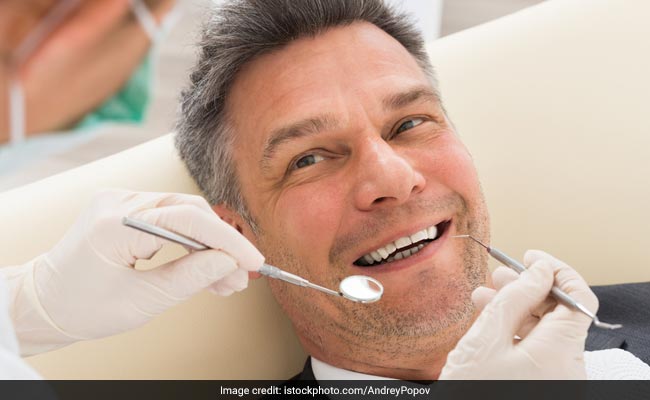
World Oral Health Day 2018: Good Oral Health changes far more than your outward appearance
HIGHLIGHTS
- Poor oral health is significantly associated with major chronic diseases
- Do not brush too vigorously as it can damage you gums and teeth
- Fluoride helps strengthen your tooth enamel to combat tooth decay
World Oral Health Day is celebrated globally on the 20th of March every year. This year's campaign theme "Say Ahh: Think Mouth, Think Health" emphasizes the importance of oral health and general well being of the body. A healthy mouth absolutely provides us nutrition for the physical body, but more importantly, it also improves our social interaction and encourages self-esteem. Our mouth serves as a "window" to the rest of the body, providing signals of general health diseases. For example, pale or bleeding gums can be a sign of blood disorders or low bone level in the lower jaw might be an early sign of osteoporosis. Poor oral health is significantly associated with major chronic diseases.
Evidence from population-based studies significantly concludes a robust connection between poor oral health and cardiovascular disease, diabetes, kidney disease, oral cancer, adverse pregnancy outcomes, stomach ulcers, obesity and many more health diseases.
Also read: List Of Foods Good for Your Teeth
Two main diseases which affect our Oral Health are Dental Caries (bacterial invasion of the tooth which demineralizes its surfaces and results in holes) and Gum Disease (bacterial invasion along the gum line causing an inflammatory response damaging the tissues and bones that support the teeth.)
9 Tips to prevent tooth decay & gum disease:
1. Brush your teeth twice a day
Don't underestimate its importance. This is a simple step that should never be overlooked. Brushing your teeth in the morning and more importantly again at night is important to remove plaque build-up and bacteria that lead to tooth decay and periodontal disease. The Modifies Bass technique where you should hold the brush head at 45 degrees angle, partly on the gums, and gently move the brush in tiny circular motions or small horizontal strokes 20 times on each tooth shall improve your oral hygiene significantly. Note: Do not brush too vigorously as it can damage your gums and teeth.
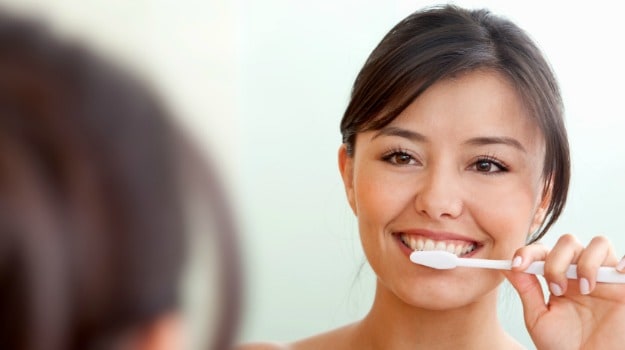
Photo Credit: iStock
2. Floss daily
Your brushing is not complete without flossing. Floss can reach the crevices too small for your brush bristles, so it's a necessary step for a clean mouth.
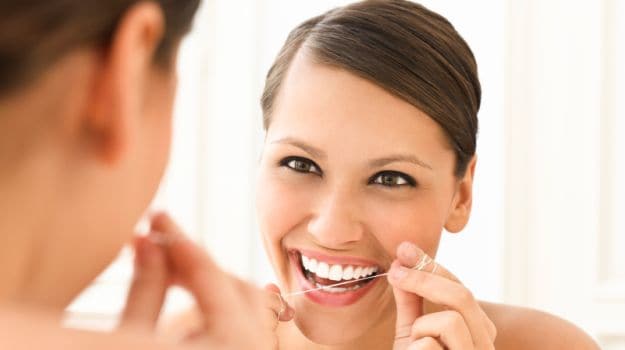
Photo Credit: iStock
3. Oral Irrigators
These are newer cleaning aids which pump water in a steady or pulsating manner and flushing out food and bacterial by-products.
4. Skip the sugar
Sugary and starchy foods cause a reaction in your mouth that leads to tooth decay. Sugar reacts with the bacteria in your saliva to form an acid that erodes your tooth enamel, the outer protective layer of your teeth.
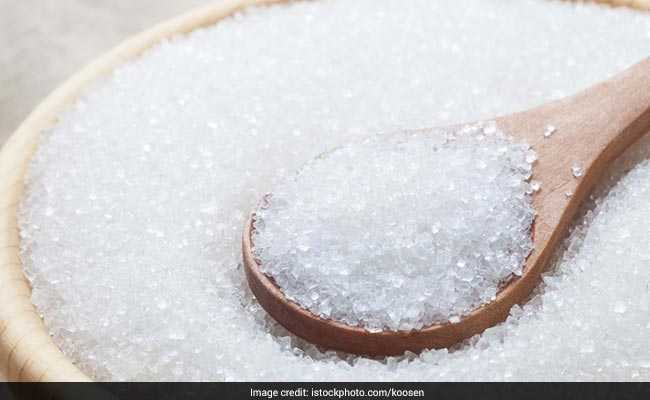
Photo Credit: iStock
5. Swish with mouthwash
For an added boost to your oral hygiene routine, rinse with an anti-bacterial mouthwash which is prescribed by your dentist.
6. Use fluoride toothpaste
Fluoride helps strengthen your tooth enamel to combat tooth decay.
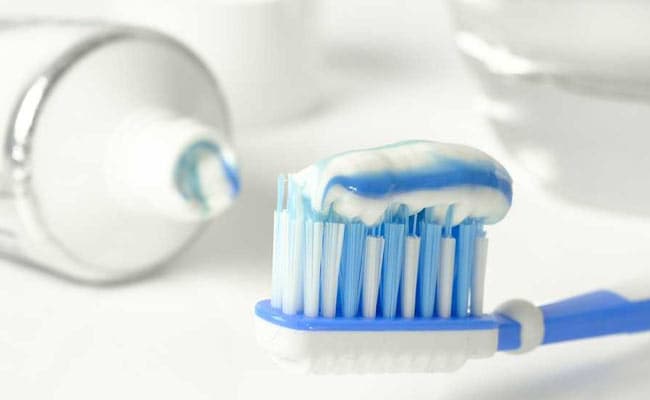
Photo Credit: iStock
7. Brush your tongue
Don't neglect your tongue! Your tongue harbors bacteria too, so use your toothbrush or a tongue scraper to give it a cleaning.
8. Pay attention to your mouth and gums
Note when your gums look inflamed or if you spot blood while brushing. Don't ignore aches and pains. Consult your dentist to make sure it's not a symptom of something serious.
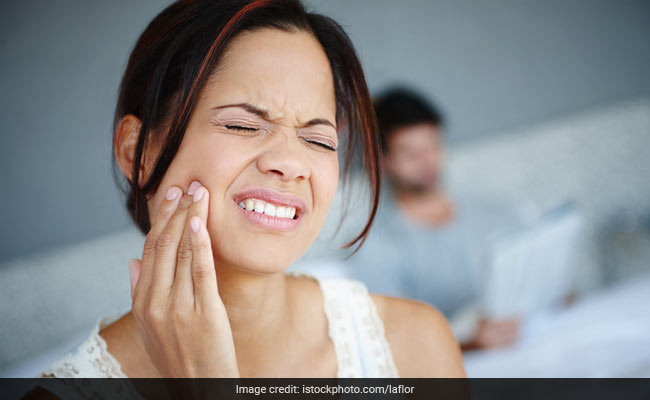
Photo Credit: iStock
9. Visit the dentist every six months
It's vital for the health of your teeth and gums that you visit your dentist for a dental cleaning and check-up twice a year. Don't assume that you can skip an appointment because your teeth look healthy and you haven't experienced any pain. A dentist has the expertise to see symptoms or signs of trouble that you can't. Also, a dental cleaning removes tartar build-up that cannot be removed at home.
Parents play a very important role in making sure that oral hygiene practices are taught early in childhood. Restrict bottle feeding to meal times. Avoid putting your baby to sleep with a bottle. The milk or juice that pools in the mouth will bathe teeth in the sugars on which bacteria feed. Before their teeth grow in, get your baby accustomed to regular oral care by wiping their gums twice per day with a clean, soft, thin cloth, such as a handkerchief.
After your baby's teeth erupt, switch to a baby toothbrush moistened with water. Don't use toothpaste until your child is old enough to spit it out. Swallowing toothpaste while their teeth are developing can cause a condition called fluorosis, which occurs from absorbing too much fluoride and causes their teeth to look mottled or grainy.
Your smile is one of the first thing people notice. Good Oral Health changes far more than your outward appearance. It renews your confidence. It changes the way you view yourself. What's more...it changes the way others see you.
Dr. Charles Mayo once said, "preventive dentistry can add ten years to human life." It is important for us to understand the existing conditions, but it is even more important for us to understand how you got like you are and what can be done to prevent the reoccurrence of dental disease and the protection of your teeth and supporting structures from damage and loss in the future.
(Dr Ayush Sharma is a Senior Consultant Dentist at SmileArc Dental Clinic and Mayom Hospital Gurugram)
Disclaimer: The opinions expressed within this article are the personal opinions of the author. NDTV is not responsible for the accuracy, completeness, suitability, or validity of any information on this article. All information is provided on an as-is basis. The information, facts or opinions appearing in the article do not reflect the views of NDTV and NDTV does not assume any responsibility or liability for the same.
DoctorNDTV is the one stop site for all your health needs providing the most credible health information, health news and tips with expert advice on healthy living, diet plans, informative videos etc. You can get the most relevant and accurate info you need about health problems like diabetes, cancer, pregnancy, HIV and AIDS, weight loss and many other lifestyle diseases. We have a panel of over 350 experts who help us develop content by giving their valuable inputs and bringing to us the latest in the world of healthcare.














